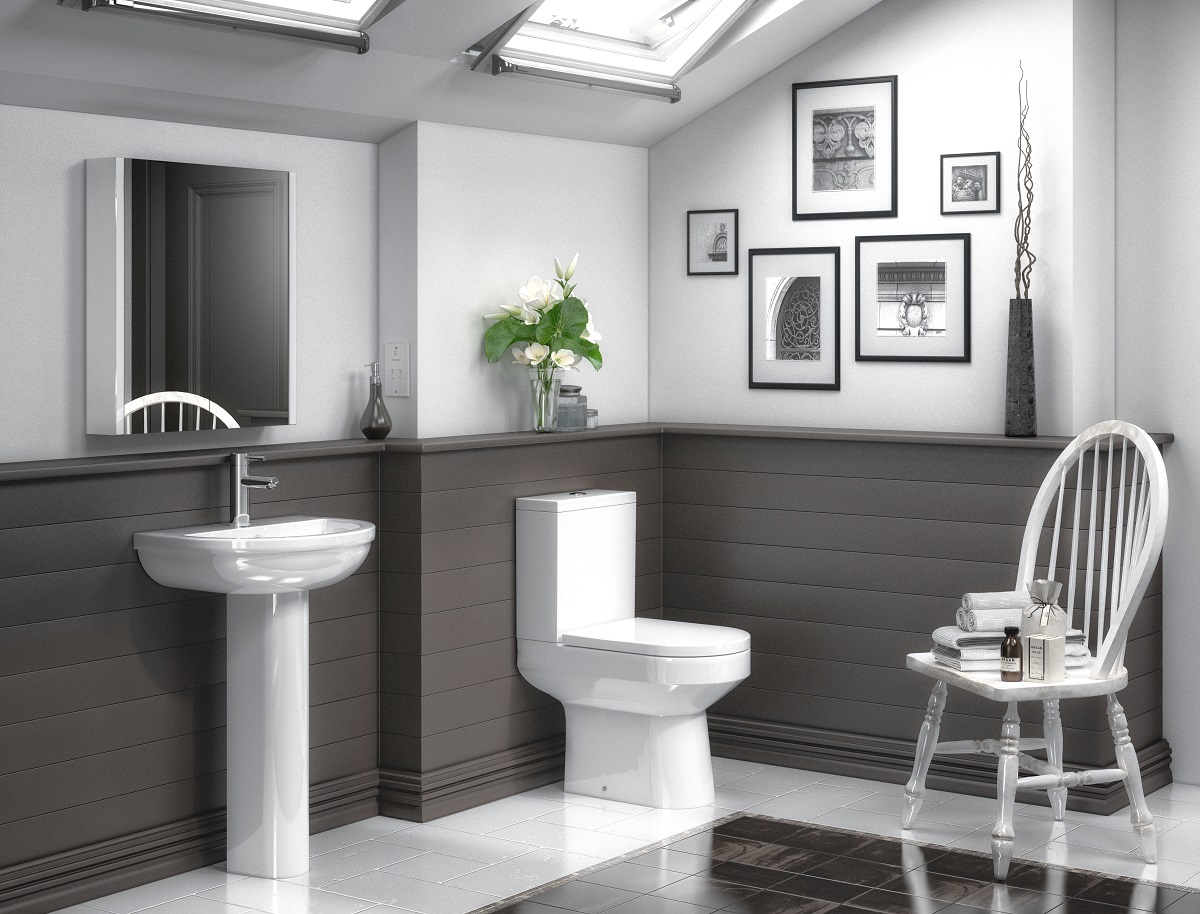Save Money Buying Bathrooms
A full supply and fit of a bathroom can be expensive. Here are tips to help save money buying bathrooms .
Firstly measuring, it helps to know what size your bathroom is. Let take an average bathroom for an example. It is 2m long, 2m wide with a height of 2.4m, this lets you know what fits and how to calculate the number of tiles or wet wall needed for your walls and flooring size. Tiles are based on total square meterage so for the bathroom walls it is 2 + 2 + 2 + 2 X 2.4 or 19.2m2. But that is not what is needed. If fitting a bath, by using basic math’s 1.2m2 can be deducted, so you now need 18m2. Working out the area of door and window is not necessary as that amount is used as wastage and cuts. So 18m2 is the total amount of tiles needed. For the floor the length times width gives total area minus the area of the bath giving 2.8m2 required. This will also be the size for other flooring choices. If using a shower, the full 19.2m2 would be needed on the walls and the floor size would depend on the shower tray size as that area would be deducted. For wet wall panels it would be 8 x 1m panels or 32 x 300mm tile effect panels.
Next research what you would like and using your floor size what would comfortably fit, it is important that you retain access to each facility. For a standard bathroom a 1700mm bath, 500mm basin and WC is the standard supply. If changing a bath for a shower note the size will affect access and the plumbing will need to change. A riser kit may also be needed. After that set your budget and go looking at items in showrooms.
Please note that some items you like may not be on display all showrooms have limited space and may not show what you want, but just ask you may find that it is available and in stock. Also be flexible many showrooms will have offers that will reduce your budget for supply.
Lastly a supply and fit are roughly 50/50 in costs for the supply and the fit. Although certain issues can increase any fitting costs especially the costs of tiles or wet walls. Tiles are more labour intensive and require tile cement and grout, wet wall only needs panel adhesive. There is also the fact that any remedial work or changes to the original lay out will also increase fitting costs. Get a survey done and then make a decision.


